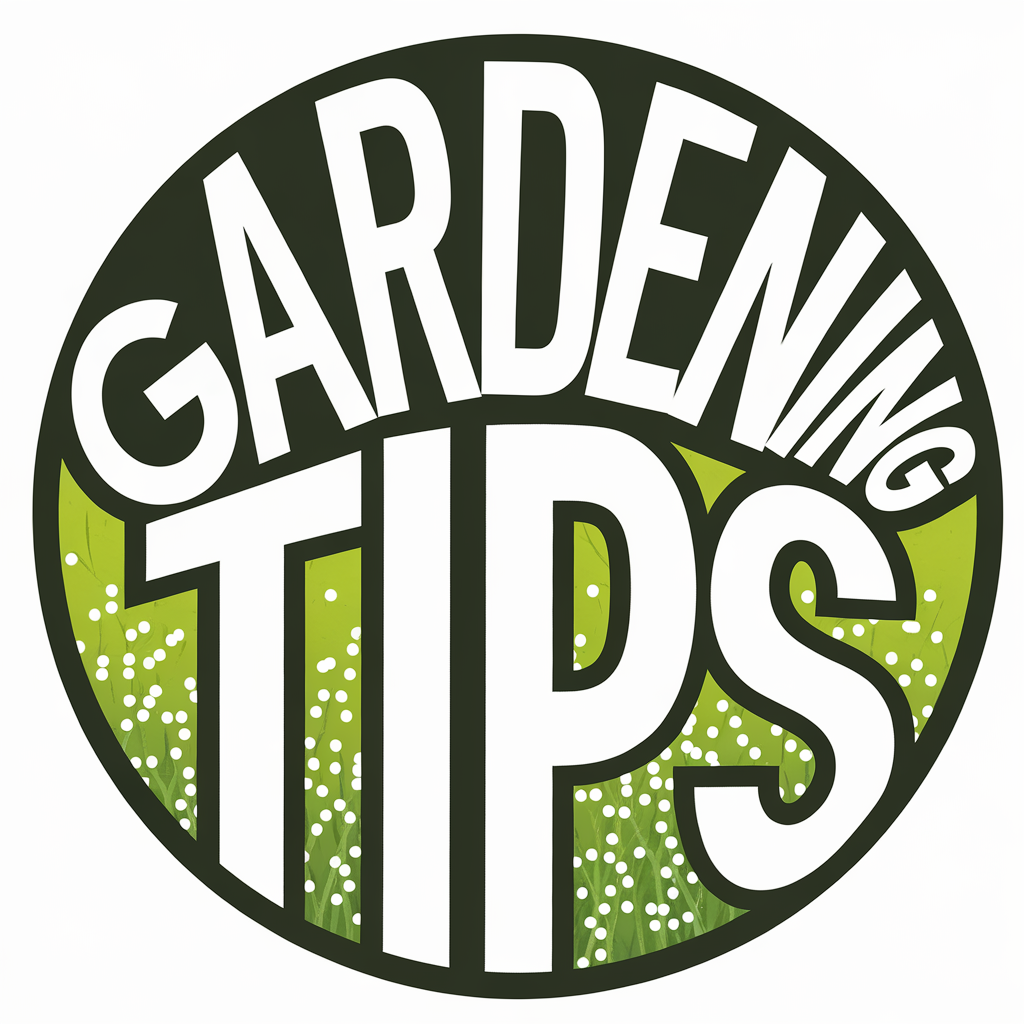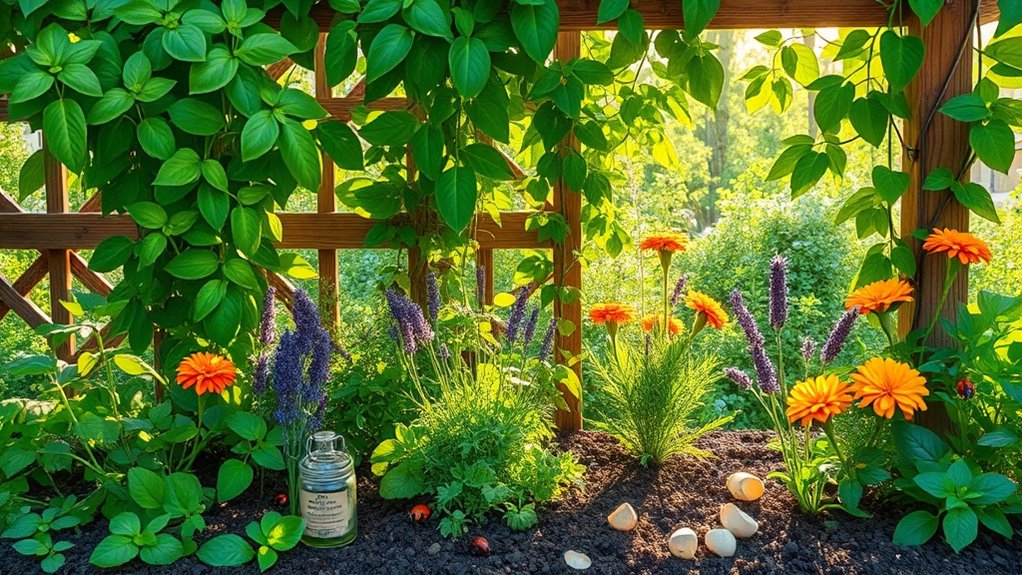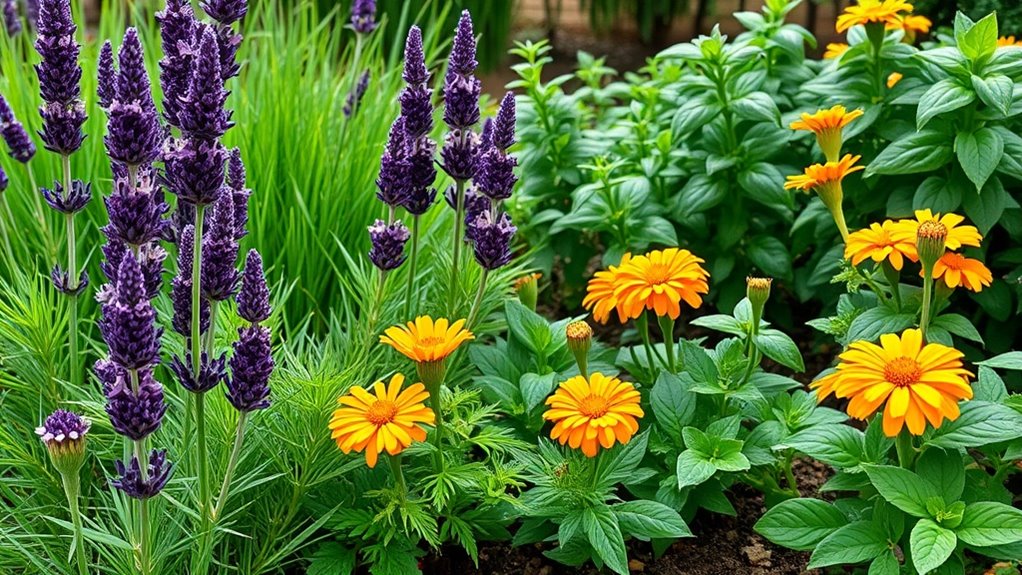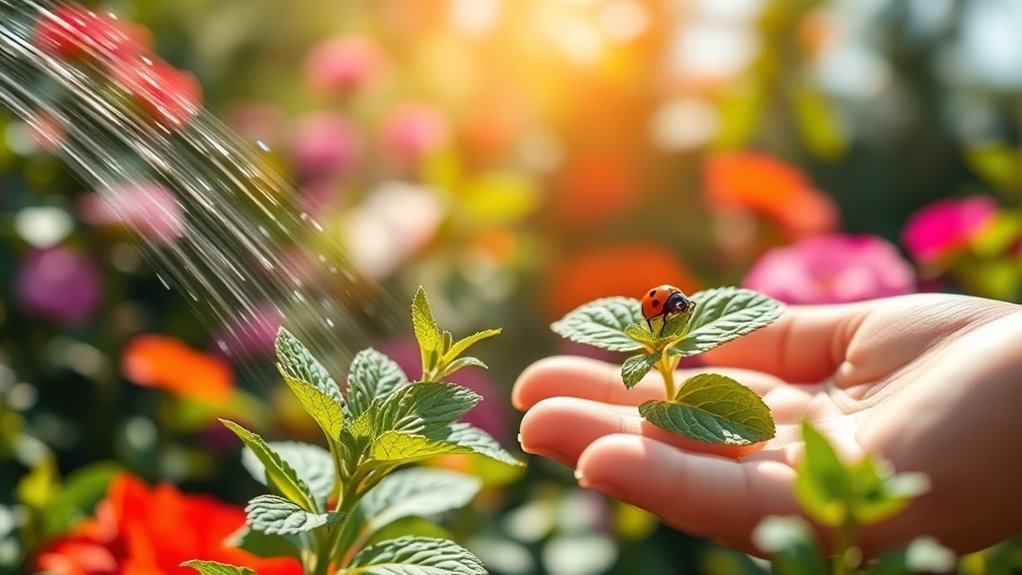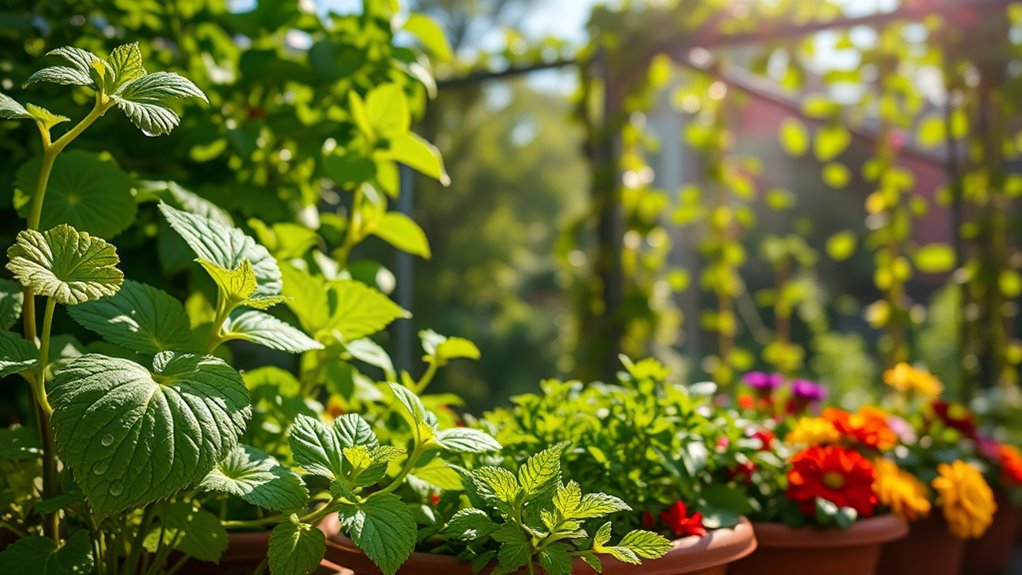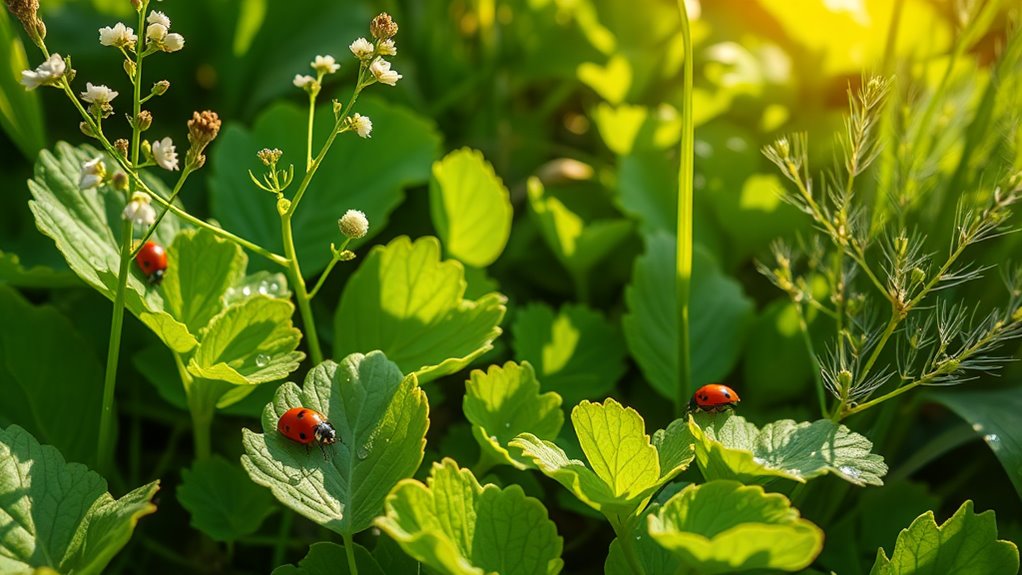How to Naturally Keep Pests Out of Your Garden
Keeping pests out of your garden requires a strategic approach, combining various methods for optimal results. It’s essential to consider companion planting, which can enhance your garden’s defenses naturally. Additionally, incorporating essential oils and fostering beneficial wildlife can create a balanced ecosystem. Yet, the key to effective pest management lies in understanding how these methods interact. Explore these techniques further to discover how they can work together to protect your plants.
Plant Companion Species
If you want to keep your garden thriving and pest-free, consider planting companion species that naturally deter unwanted insects. For example, marigolds can repel nematodes and aphids, while basil enhances tomato growth and wards off pests. Additionally, incorporating marigolds in your garden can attract beneficial insects that help control harmful pests.
Utilize Essential Oils
Essential oils offer a potent, natural solution for keeping pests at bay in your garden. They can effectively repel unwanted insects without harming beneficial ones. Here’s a table showcasing some common essential oils and their pest-targeting properties:
| Essential Oil | Pest Repelled |
|---|---|
| Peppermint | Ants and Spiders |
| Lavender | Moths and Flies |
| Tea Tree | Fungus Gnats |
| Eucalyptus | Aphids and Beetles |
Utilize these oils to protect your garden sustainably. Additionally, these oils possess antifungal and antibacterial properties, enhancing holistic pest management in your garden.
Deploy Natural Predators
While using essential oils can effectively deter pests, introducing natural predators can provide an additional layer of protection for your garden.
Beneficial insects, like ladybugs and lacewings, consume aphids and other harmful pests. Birds, such as wrens and chickadees, also feast on various insects. Additionally, maintaining diverse plant species can enhance the presence of beneficial insects, further supporting your pest control efforts.
Create Physical Barriers
Creating physical barriers is one of the most effective ways to protect your garden from pests.
You can use row covers, screens, or garden netting to shield plants from insects while allowing light and moisture to pass through.
Additionally, employing fences can deter larger animals.
Ensuring barriers are securely placed and regularly checked is vital for maintained effectiveness against persistent pests.
Implement Diatomaceous Earth
One effective method to combat pests in your garden is by implementing diatomaceous earth.
This natural powder consists of crushed fossilized algae, which can effectively target soft-bodied insects. When applied, it disrupts their exoskeletons, causing dehydration and ultimately leading to their demise.
Just sprinkle it around your plants or affected areas, and reapply after heavy rain for continuous protection against pests.
Employ Homemade Repellents
When pests invade your garden, employing homemade repellents can provide an effective and eco-friendly solution. Mix water with spices like cayenne pepper or garlic; their strong scents deter unwanted visitors. You can also use dish soap mixed with water to create a barrier that disrupts pests’ natural habits. Regular application enhances efficacy, ensuring your garden remains a thriving, pest-free environment. Additionally, creating natural barriers like crushed eggshells can further complement your pest control efforts.
